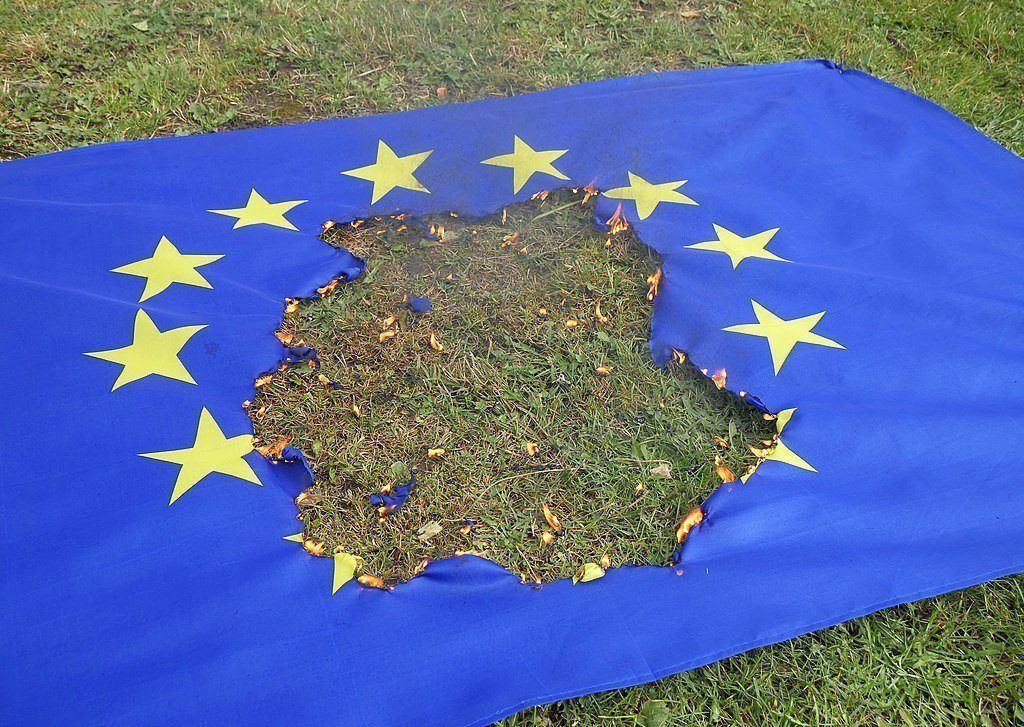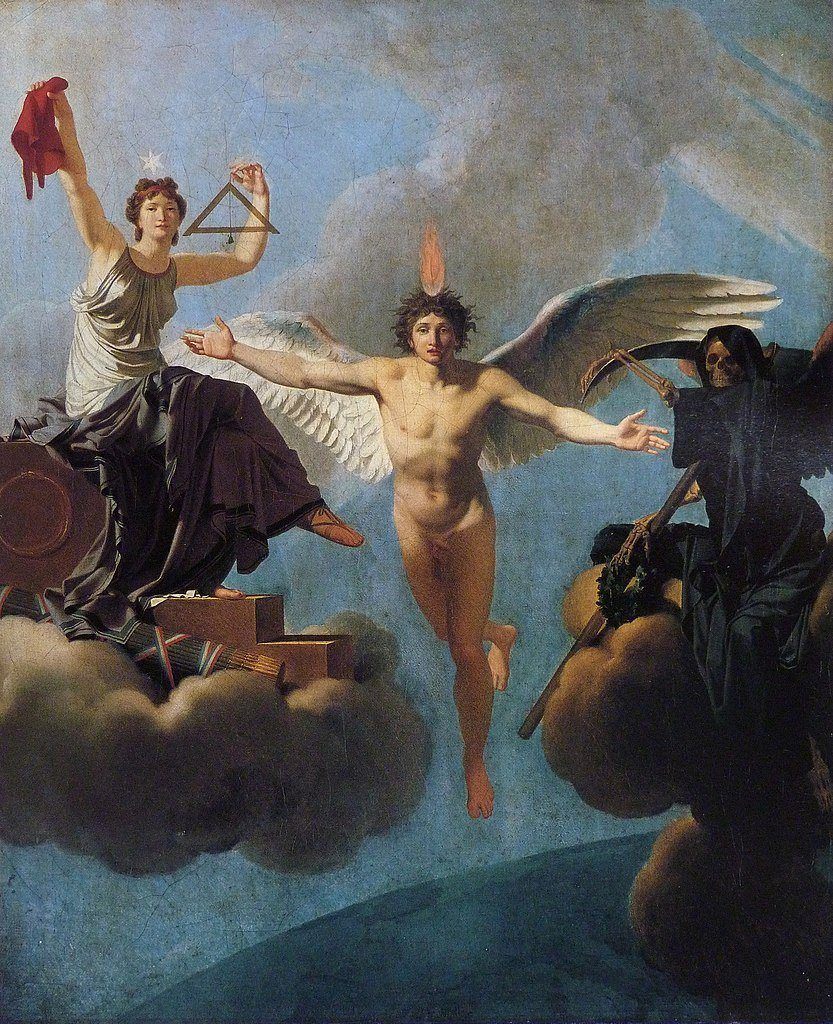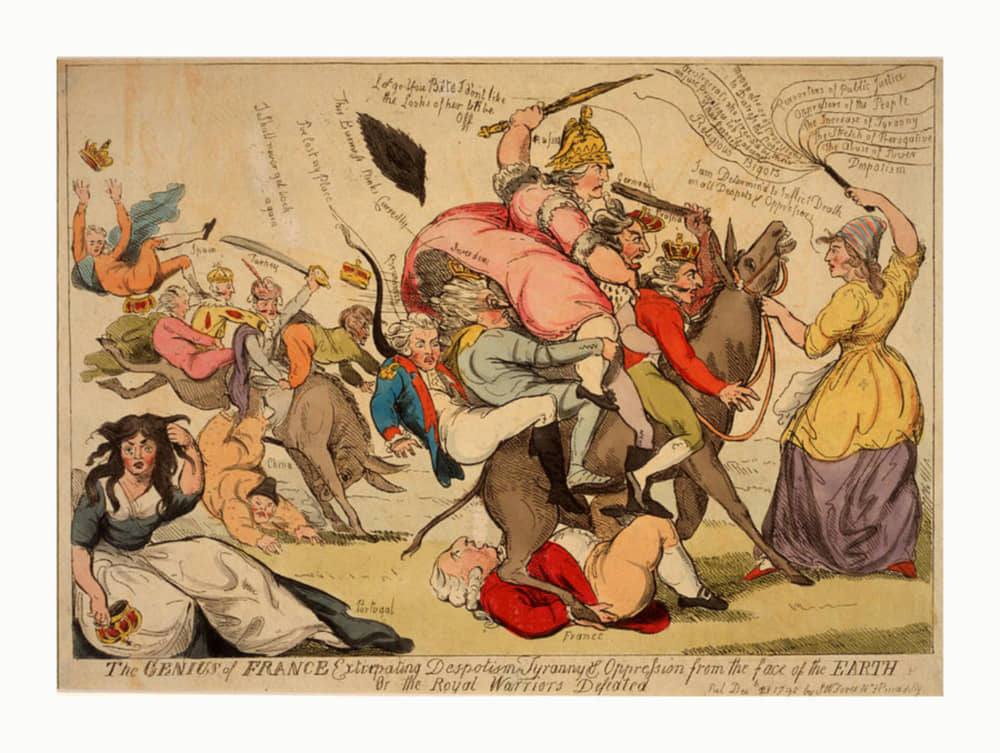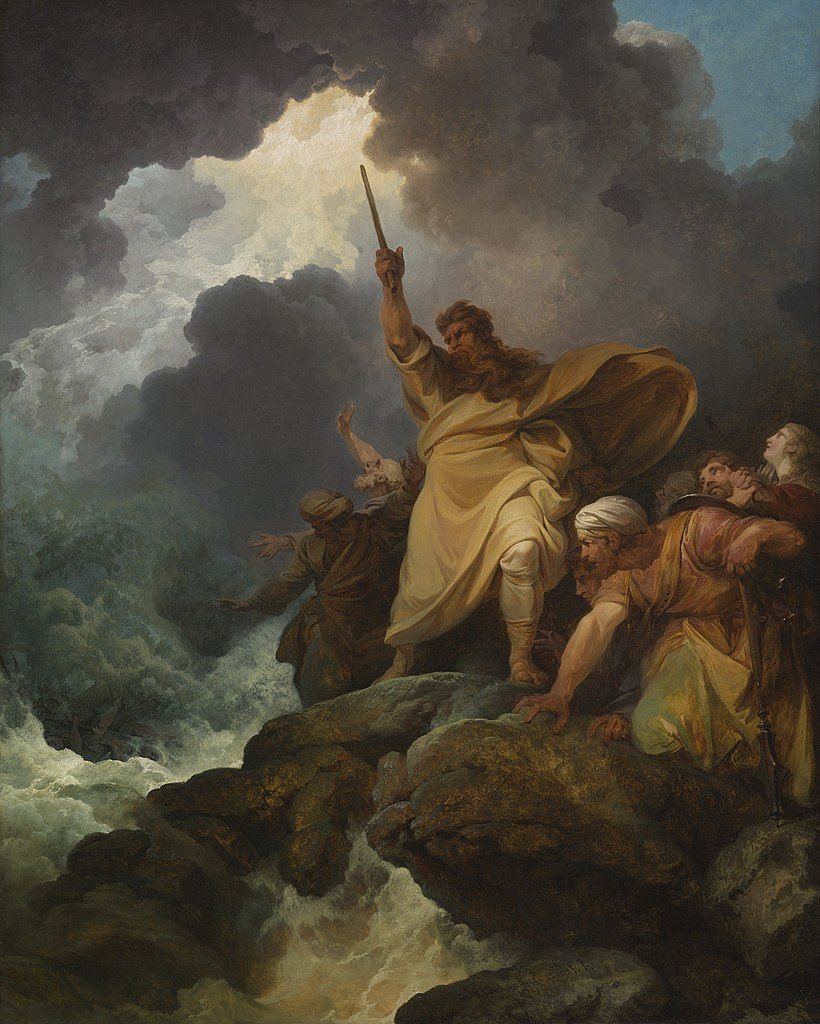Should the European Parliament exist? What is the ultimate purpose of the supranational structure known as the “European Union?” The philosopher and statesman, Ryszard Legutko tackles these questions with elegant clarity and razor-sharp wit.
Ryszard Legutko is a member of the European Parliament. He is the author of The Demon in Democracy, Society as a Department Store: Critical Reflections on the Liberal State, and, most recently, The Cunning of Freedom.
The conversation that follows, with the journalist Karol Gac, first appeared in the Polish weekly, Dorzeczy (November 7, 2021). We are so very pleased to present this first English translation.
Karol Gac (KG): In which direction, in your opinion, is the European Union heading?
Ryszard Legutko (RL): It’s heading toward oligarchy that is being created by European institutions and the strongest West European countries. And since Europe is dominated by the Left, this oligarchy is united by leftist ideology, aiming at radical restructuring of European societies. While it is true that the powerful states do not necessarily want to dissolve into this European mass, nevertheless they strengthen European structures because through them they pursue their interests. For example, those structures are used by Germany, which for historical reasons cannot impose itself too much with its political power; or by France, which dreams of French leadership in Europe; or smaller countries, such as, the Netherlands and Belgium, which want to strengthen their position in this way. The oligarchy that is emerging is therefore particularly dangerous – it is ruled by the powerful group of a few countries, which use institutions to seize powers not conferred upon them by treaties, and impose an extremely harmful ideology.
KG: Are we witnessing a Hamiltonian moment and an attempt to build a European superstate?
RL: For the European Union, any opportunity is good to advance centralization. It seemed that the poor response to the pandemic would discredit the EU institutions; yet these institutions took advantage of the pandemic by creating programs for a reconstruction fund and a common debt, which is, of course, another step towards centralization. They immediately claimed for themselves jurisdiction over who gets the funds and who does not. This may be a Hamiltonian moment, but it is important to remember that this trend has been going on for a long time.
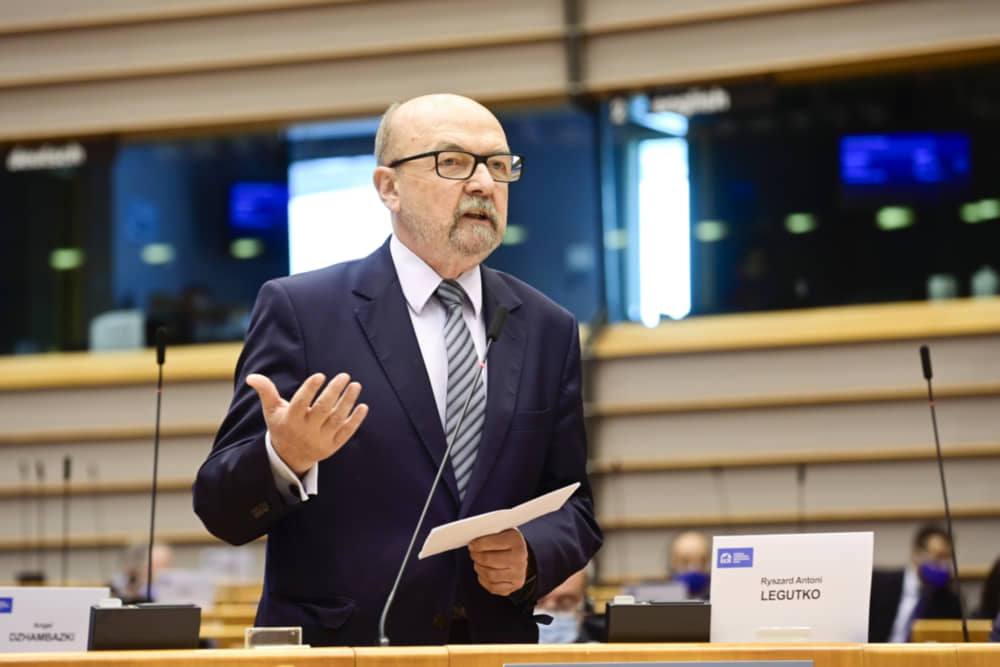
KG: Given this, isn’t the dispute over the primacy of law fundamental?
RL: Of course, it is. In Polish history we have repeatedly stood up for freedom. It is no different now, when we oppose the new despotism that the European oligarchy is trying to impose on the rest. The primacy of European law is a relatively new invention. In the past, this concept appeared in rulings of the CJEU [Court of Justice of European Union], but it was just the judges’ hypercreativity. We know the judges cannot make law. The law is enshrined in the treaties; and there is not a word in them about the primacy of European law. Pulling the general principle of the primacy of European law out of the hat now is the most ordinary political sleight of hand and proof that violating the Treaties with impunity has already become an everyday practice in the European Union.
It is characteristic that in the European Parliament, the president of the European Commission, Ursula von der Leyen, did not even try to justify her position, when she responded to the speech of Polish Prime Minister, Mateusz Morawiecki. And she did not use any arguments, because no such arguments exist. If they did exist, we would be constantly reminded of them. So, what von der Leyen was left with were threats! That is why Poland can’t back down on this issue. If we give in, in the face of obvious lawlessness, it will be tantamount to surrendering power over Poland to Brussels and its superiors.
KG: However, observing the recent disputes with Brussels, one can come to a conclusion that the EU institutions are acting according to the principle, “What can you really do to us?” We seem to be pointing out that there is no basis for this in the treaties, but these things happen. The law of the stronger?
RL: Definitely. The European Commission, supported by Parliament and unopposed by the major political players, has introduced an unmitigated heavy-headedness into European politics. Actually, the signs of it had been visible before, but the official signal was given by Jean-Claude Juncker when he described the Commission as a “political” institution – if political, then engaging in political conflicts and power struggles. Previously, the Commission was something like a secretariat that prepared projects for implementation. It seemed that von der Leyen would break away from the Juncker model; but she did not. Another institution that does a lot of bad things is the European Parliament, previously derided as decorative. Well, that has changed. It is now a politically rampant institution, controlled by the Left and, as the Left does, it wants to build a brave new world. The despicable role is played by the European People’s Party – the largest group in the European Parliament – which has long since abandoned its Christian-democratic identity. Its leader, Manfred Weber, has made it into a lickspittle dragoon of the left, directing all its energy to fighting the remnants of the political Right.
KG: It seems that the European Union has been at a crossroads for several years. Perhaps the main reason for the Union’s crisis is simply a crisis of its institutions?
RL: The main source of the EU crisis is the European Union itself. Its rulers do not draw conclusions from what is happening. The reaction after Brexit was characteristic; when instead of decreasing the intrusiveness of interference in the affairs of member states, they increased it. Why is this so? The Union contains fundamental structural errors. The most detrimental to the Union is the principle of an ever-closer union. This slogan means that the regulations and laws that have been written down are actually provisional and that their violation and stretching can be tolerated, provided that it serves the purpose of greater federalization and integration. This of course results in contempt for the law, as we see in the Court of Justice of the EU. It is a political institution where government appointees use the law to deepen the centralization of the union. The judges of the CJEU behave politically and their rulings are sometimes completely bizarre and expose their political agenda.
Here is an example. Hungary sued the European Parliament over the activation of Article 7. The issue was that twelve hours before the vote, we received instructions from the Bureau of the European Parliament that abstentions would not be counted, which was a clear violation of the Treaty. The Treaty explicitly stipulates that in the case of votes on Article 7, all votes cast count. So, it seemed that the Hungarians had to win. However, the CJEU ruled that the abstentions could be considered as votes not cast. This is sophistry of the most shameless kind. With such an attitude to the law, it is difficult to gain respect for the European judges and treat the CJEU as a bastion of the rule of law.
Another structural error of the Union is that its institutions are not accountable to the electorate. Who are the commissioners? They are people parachuted in by governments and approved not individually, but as the European Commission in its entirety by the European Parliament. They have no responsibility because they are not accountable to any electorate. Being not accountable to their voters, they can ignore; but they are rather soft-spoken when it comes to confronting the powers that be. Who is Vera Jourova, a Czech commissioner, a figure who emerged out of nowhere, and what legitimacy does she have to threaten and bully the Polish government? An institution acting in this way must sooner or later degenerate, and this is happening before our very eyes. As for the European Parliament, it should not exist at all. The Union is not a state and Europe is not a nation.
KG: All the more so since the European Parliament was created on the assumption that there is a European demos. Meanwhile, we know perfectly well that it does not exist, because there are many nations in Europe.
RL: We have a completely bizarre situation in which 650 MEPs (out of about 700) are deciding on Polish affairs, but they are not accountable to the Polish electorate. The whole idea of parliamentarianism is that the representatives are accountable to the voters; and here we have zero accountability. That is why the European Parliament has degenerated the fastest and the most spectacularly. It is an unbalanced chamber with no respect for rules, including those of decency. The creators of the Union, if they acted in good faith, assumed that the European institutions would self-limit; but they did not create any effective mechanisms that would force those institutions to do so. The art of system building lies, among other things, in creating means to inhibit the natural tendency of institutions to grow, to increase their power, to create pathologies. To cure the Union of its ills, a fundamental reform is needed.
KG: We have the European Commission, the European Parliament and the European Council. What is the point of having so many EU institutions if, at the end of the day, it turns out that decisions are taken either in Berlin or within a narrow circle, in a rather non-transparent procedure?
RL: This is another of the structural flaws of the European Union. There are at least three power structures in the EU. The first is what is enshrined in the treaties. The second is the real power structure. Germany is the dominant power because it is the strongest country; and no matter what we write into the treaties, that power is not invalidated. It is simply a fact. The system enshrined in the treaties cannot therefore operate in isolation from the real system of power; and this makes the decision-making process unclear and arbitrary. And then there is a third power structure that goes beyond the EU but is very much embedded in it, namely, ideological power.
The Euro-enthusiasts like to repeat the slogan that the EU is unity in diversity. Nothing can be further from the truth. There is no diversity in the Union. There is one ideological model established by the Left; its consequence being the growing despotism. Consequently, the people who are thriving in the Union are former communists. For them, it is like their second youth. Look, for example, at the former communists, once Poland’s prime ministers, who are now MPs. The EU probably brings to their minds the memories of the good old days of proletarian internationalism and the alliance of brotherly parties. In addition to the old communists, there is, of course, the new left with their gender ideology. All this makes the EU a somber place. Unfortunately, Poland and Europe are dominated by a mystified image of the EU, where its dark side is ignored. We won’t learn about this side from professors of European studies, because they either don’t know or don’t want to know how the EU works – and what they do is not far from ordinary propaganda.
KG: Assuming that the EU will continue in the current direction, is this project tenable?
RL: Everything is tenable for a while. The question is, for how long? Many people want the EU to continue its existence, not least because of its demoralizing nature. We can imagine a person entering – forever, as he hopes – into this large, complex system, receiving a very good salary, being fed with the ideology that he is working for a better Europe, or pretends cynically that that he is doing it. But such a person is not quite representative of the current mood. There is growing discontent among citizens, mainly in Western Europe. No wonder that a lot of us expect that the political forces that criticize the EU will come to power and stop the current trend. Until there is a political counterweight to the ruling oligarchy in the EU, the process will unfortunately continue. If a few relatively conservative and sovereign governments were to be formed, the situation could improve. If not, the dissatisfaction will grow and take various forms, also more violent than now.
KG: And maybe this counterbalance will be created by Poland? Some time ago the Law and Justice Party gave an impetus to create an international alliance of right-wing forces.
RL: Those who want more oligarchy in the EU (including the European Parliament and the European Commission) launched a big project called the “Conference on the Future of Europe,” which is a preparation for the next federation leap. There must be a response from those who oppose it. In the West European countries, a large part of the citizens, who look critically at the EU, do not have sufficiently influential political representation, and their voice is eliminated from the public sphere. That is why East European countries, like Poland, have a role to play.
KG: When joining the EU, many people thought it was a gentlemen’s club, where there was a community of values, and decisions were made together. Maybe Poland perceived and still sometimes perceives certain things too naively, and we have just received lessons in realpolitik?
RL: That is indeed how we thought about the EU, although the EU was never such a club. But previously, in the ECC, there was a relative political balance, which today has been replaced by monopoly, and there was also a partial ideological balance, which has been replaced by mono-ideology. Let us not forget that as a result of the educational collapse, European elites today represent a very low intellectual level and are effectively grouped together. The old Europe that we longed for under communism is as alien to the European Union as vegetarianism is to cannibals. The experience of the Union has also given us the opportunity to get to know ourselves better. The emergence of a group of compatriots who do not want the sovereignty of Poland must be shocking. Not many years have passed since the fall of communism, and still 1/3 of Poland prefers to be governed by someone from outside. It is a very dangerous signal. If these proportions were different, it would be easier for Poland to take a leading role and act more boldly in Europe and create a broader sovereignist and reformist front in the EU.
